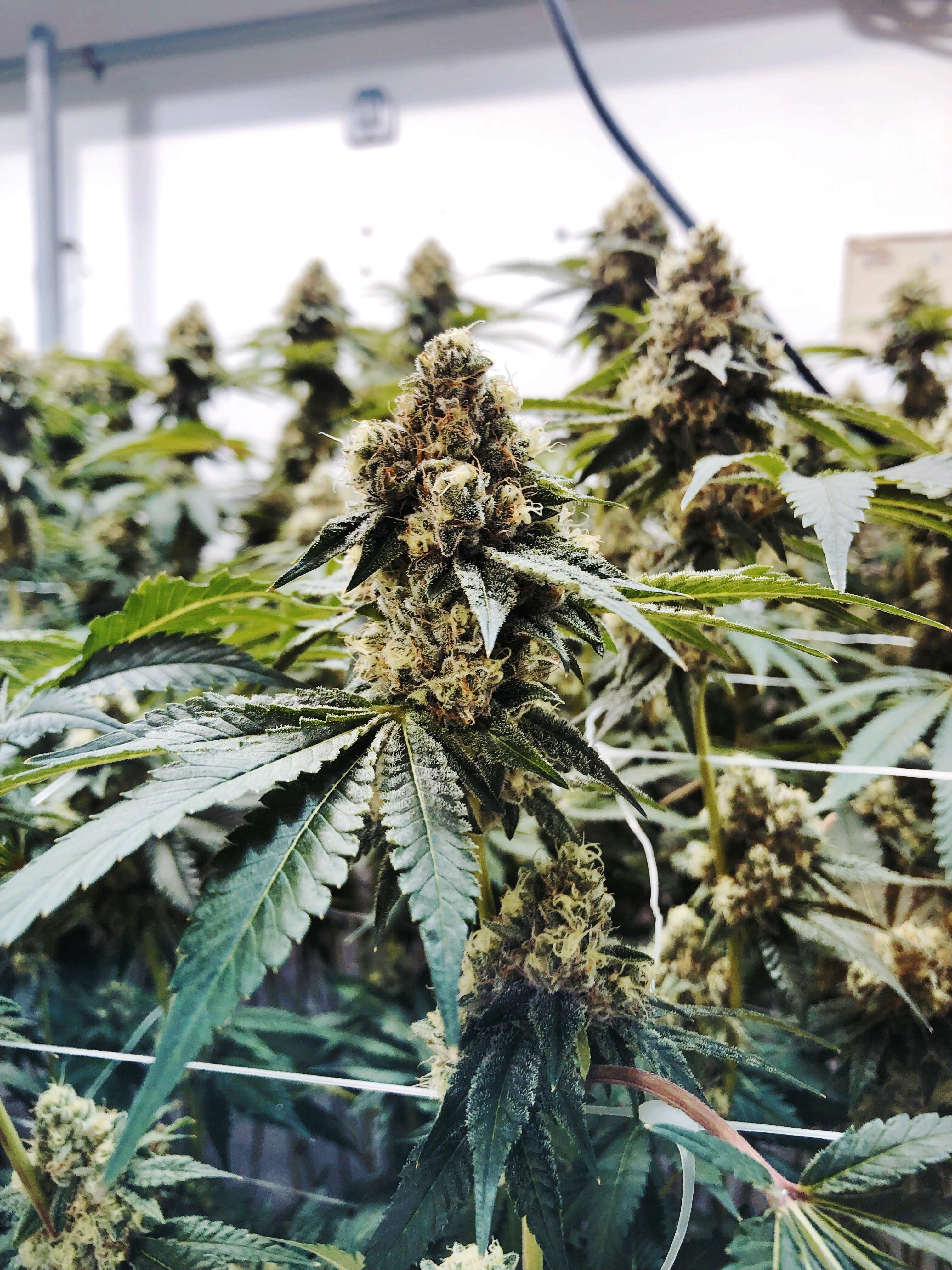In 2019, Carl’s Jr launched a burger with CBD infused special sauce in honor of 4/20, Sephora currently has a CBD skincare section on their website, Sprig CBD sodas seem to be taking over the cold cases in cafes, and just about every grocery store, pharmacy and gas station seems to have some sort of CBD infused gummy, topical, or capsule on hand. Yet we still see CBD products in weed stores, as well. What is the difference between the CBD you can get at the grocery store and the CBD you get from a dispensary?
It starts with the source. CBD can be sourced from 2 places: cannabis or hemp. Technically, cannabis and hemp are actually the same plant. Before Cannabis Prohibition, hemp was the male plant that was used for industrial purposes (for its fibers and oils) and cannabis was the female plant used for medicinal purposes, typically in tincture form.
In fact, most modern CBD hybrids have industrial hemp in their genetic lineage, as it is a reliable source of CBD. Charlotte’s Web, for example, was bred by the Stanley Bros by crossing a high-CBD industrial hemp plant with an unknown high-THC cannabis varietal. Before the strain found fame by helping to reduce seizures in children, it was originally called “Hippie’s Disappointment” by the breeders, due to its inability to produce a head-change.
Recently, a more modern distinction has been made with the passing of the 2018 Farm Bill, which defines hemp as cannabis plants that do not contain more than 0.3% THC by dry weight. This was helpful because previously ALL cannabis plants were considered to be Schedule I drugs. The Farm Bill also allowed:
- Hemp cultivation
- Transfer of hemp-derived products across state lines
- Possession of hemp-derived product
However, there is a common belief that the passing of the Farm Bill meant the legalization of CBD. This is untrue. CBD is still regarded as illegal in the eyes of the federal government. In fact, it gets pretty specific: the Farm Bill states that any cannabinoid that would traditionally be found in cannabis that is derived from hemp is considered legal. That’s right, hemp-derived CBD is legal (within very strict parameters) but the production and sale of products containing CBD is technically illegal. The products then are federally unregulated. Basically, the best thing the Farm Bill did was to decriminalize growing hemp for CBD purposes as growers were being jailed for growing plants that didn’t contain THC.
Because Hemp has been grown for hundreds of years as an industrial crop, there are many different countries growing it. And each country has different approved growing methods. Due to the fact hemp is traditionally an industrial crop, the approved pest control agents are typically more dangerous than those that would be approved for agriculture that is being grown for consumption. Currently, China is the leader in industrial hemp production worldwide
.
And here’s where it gets uncomfortable: many of the companies launching CBD products are sourcing CBD derived from hemp grown for industrial purposes despite the fact their products aren’t intended to be consumed or applied to the skin. That means you are consuming all those industrial pest control agents, as well. And because, at the federal level, food and drinks containing CBD are still considered illegal, these products are not being regulated. Currently, the FDA has only approved one prescription-only CBD product for the market, Epidiolex. This means that no one is confirming the potency of these over-the-counter products, or if they contain any CBD in them at all, let alone where that CBD is sourced from. Even scarier, some companies will even go so far as to add dangerous synthetic cannabinoids, often called K2 or Spice, which can have a myriad of dangerous side effects including coma and death. According to a recent Leafly article, of the 350 samples of CBD products that have been tested by government labs, 128 of them contained synthetic cannabinoids.
So how can you avoid purchasing harmful products in the pursuit of health? Visit your local weed store! All cannabis dispensaries are held to strict regulations set by the states. In the state of WA, all cannabis products are tested for potency and pesticides. In fact, here at Dockside, you can request to see test results for products before purchasing, and each product has been rigorously vetted by our buying team. Plus, you’ll get the added benefits of trace amounts of other cannabinoids such as CBG and THC. Yes, our products will all contain at least trace amounts of THC, but we have a variety of different potencies, including the ever-popular, very low THC 20:1 ratio. Many studies have shown that CBD works best with a pinch of THC alongside it. This is often referred to as The Entourage Effect. And if you have a bad experience, most weed dispensaries will allow you to make an exchange for a different product. Lastly, by shopping for CBD products at your local weed dispensary, you are voting with your dollars for a better regulated product, as well as supporting local growers and retail businesses.
So take a trip to your local weed store and chat with a budtender about your CBD needs. Chances are you will walk out with a wonderful full potency product infused with CBD grown right here in the state of WA, as well as some tips and tricks on the best way to use it. To add to the good vibes, you will be helping a farmer fulfill their dreams of growing cannabis, while also supporting state regulations that ensure quality and safety. Best of all, you will get to experience the positive benefits of taking CBD without some of the nasty side effects that accompany unregulated CBD products, and it doesn’t get any better than that!